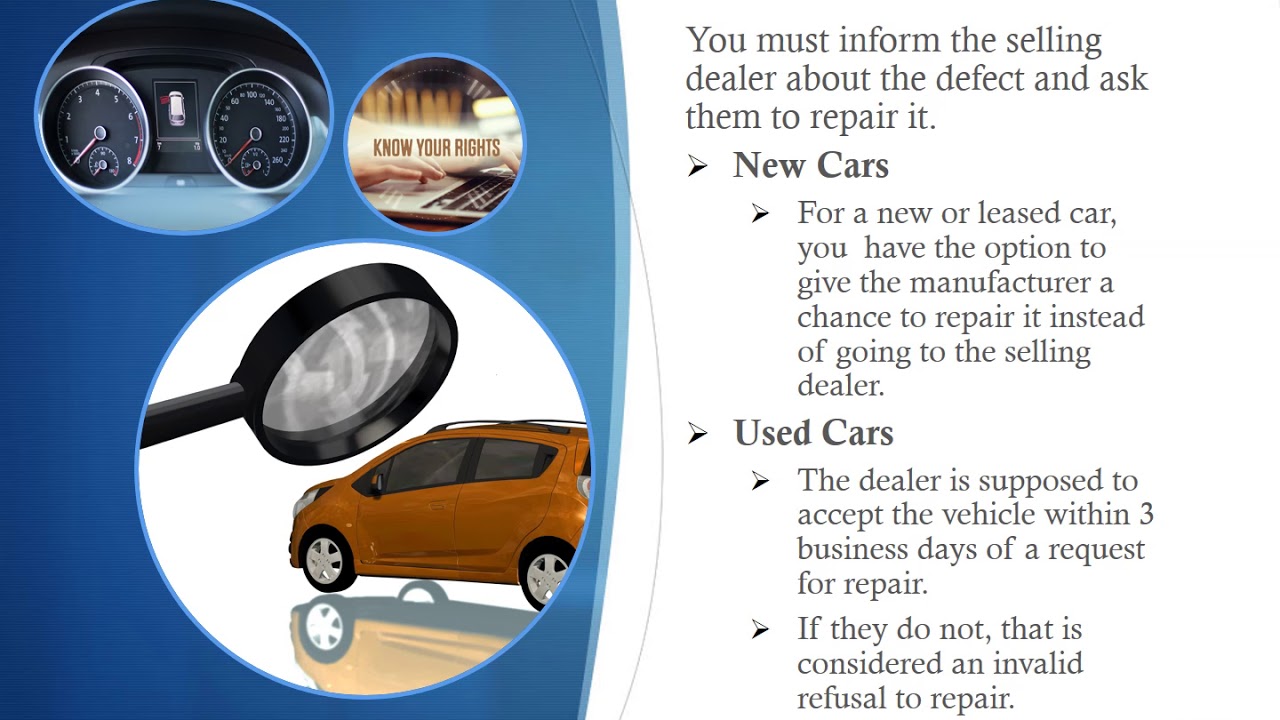Understanding the lemon law in Rhode Island
In Rhode Island, the lemon law is a set of legislation designed to protect consumers who purchase defective vehicles. These laws help ensure that buyers are not stuck with a faulty vehicle and have appropriate legal recourse if they unknowingly purchase a lemon. While lemon laws typically apply to purchases made from authorized dealerships, there may be some implications for private sales as well.
Are private sellers protected by lemon laws?
Private sellers, individuals who are not engaged in the business of selling vehicles, are generally not protected by lemon laws in Rhode Island. Lemon laws primarily focus on commercial sales made by licensed dealerships. Therefore, if you purchase a vehicle from a private seller, you may not have the same level of protection as you would when buying from a dealer. However, this does not mean that private sellers are entirely exempt from any legal obligations.
How lemon laws affect private sales in Rhode Island
While private sales are typically not subject to lemon laws, there are still legal implications that can affect both the seller and the buyer. Private sellers are expected to disclose any known defects or issues with the vehicle to potential buyers. Failing to do so could result in legal consequences for the seller, such as being sued for misrepresentation or fraud. On the other hand, buyers should exercise caution and perform thorough inspections before purchasing a vehicle privately to avoid any unpleasant surprises.
Rights and responsibilities of private sellers in RI
Private sellers in Rhode Island have certain rights and responsibilities when selling a vehicle. They have the right to sell their vehicle in its current condition, as long as they accurately disclose any known defects. However, sellers should not engage in deceptive practices or intentionally hide any issues with the vehicle. It is their responsibility to be transparent and provide accurate information to potential buyers.
Buyers beware: lemon law implications in private sales
Buyers who purchase a vehicle privately should be aware that lemon laws do not usually apply to such transactions. This means that if they discover any defects or problems with the vehicle after the sale, they may not have the same level of legal protection as they would if they had purchased from a dealership. Therefore, it is crucial for buyers to thoroughly inspect the vehicle and consider obtaining a professional inspection before finalizing the purchase.
Legal obligations for private sellers in Rhode Island
In Rhode Island, private sellers have legal obligations when selling a vehicle. They must disclose any known defects or issues that may affect the vehicle’s safety, function, or value. Failure to disclose such information may result in legal consequences for the seller. Private sellers should also be truthful in their advertising and avoid making false claims about the vehicle’s condition or capabilities.
Tips for private sellers to avoid lemon law disputes
To minimize the risk of lemon law disputes and legal issues, private sellers should follow certain tips. Firstly, they should be transparent and disclose any known defects or issues with the vehicle. It is also advisable to keep records of any repairs or maintenance performed on the vehicle, as this can support the seller’s claims about the vehicle’s condition. Additionally, sellers should avoid making false claims or misrepresenting the vehicle’s condition to potential buyers.
Lemon law exceptions in private sales: what to know
While lemon laws generally do not apply to private sales in Rhode Island, there are a few exceptions to be aware of. If the vehicle being sold is still covered by the manufacturer’s warranty, the buyer may be able to seek remedies under that warranty for any defects. Additionally, if the seller fraudulently conceals known defects or engages in deceptive practices, lemon law protections may apply. However, these exceptions are relatively rare in private sales.
Navigating lemon law disputes in private transactions
If a buyer believes they have purchased a lemon from a private seller, navigating lemon law disputes can be challenging. In most cases, the buyer will need to seek legal advice and explore options for pursuing a legal remedy. However, without the explicit protection of lemon laws, proving the seller’s fraudulent concealment or misrepresentation can be difficult. It is recommended that buyers consult with a qualified attorney to understand their rights and explore potential legal recourse.
What to do if you unknowingly purchase a lemon
If a buyer unknowingly purchases a lemon from a private seller in Rhode Island, their options for recourse may be limited. While they may not be able to rely on lemon laws, they can still take certain steps to protect their rights. It is crucial for buyers to document all relevant information about the purchase, including any representations made by the seller. They should also consider obtaining a professional inspection to gather evidence of any defects. If all else fails, seeking legal advice to explore potential legal avenues is advised.
Seeking legal recourse in lemon law cases in Rhode Island
In Rhode Island, seeking legal recourse in lemon law cases can be complex, especially in private sales. Without the explicit protection of lemon laws, buyers may need to rely on other legal theories, such as fraud, misrepresentation, or breach of warranty, to pursue their case. Engaging the services of an experienced attorney who specializes in consumer protection laws can greatly improve the chances of a successful legal outcome. It is crucial for buyers to act promptly and gather as much evidence as possible to support their claims.





